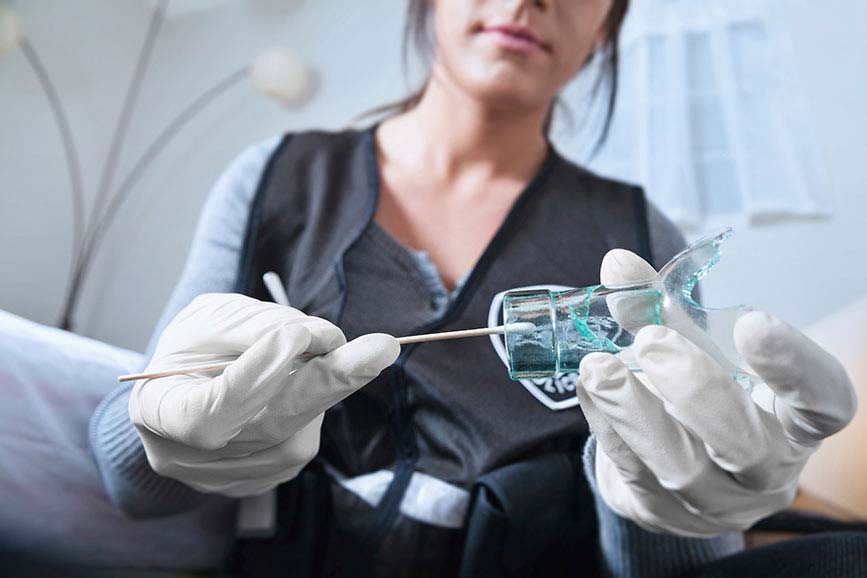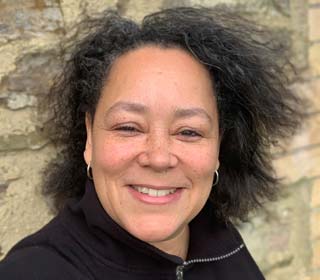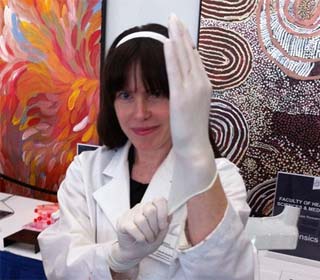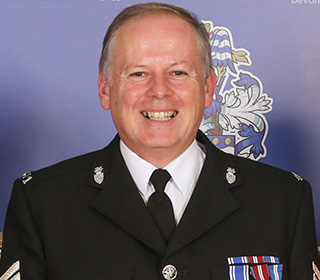BA (Hons) Criminology with Forensics
Unleash your passion with practical learning and build your skills with criminological theory.


Lots of hand-on practice to build your forensic and criminology skills

Apply now for this course
Three A levels grades CCC or above
BTEC triple grades MMM or above
Access 23-45 D/M with min 6D
T level P (C+)
GCSE English Language, Maths and a Science at grade 4 or grade C or above
Course Summary
Deepen your understanding of the relationship between criminological issues, law, policy, and procedure and how they fit into the practicals of forensic investigation.
Dive into criminology to explore crime, deviance, and criminal behaviour and observe how these topics can manifest in the world, with hands-on forensic and investigative situations.
Why study Criminology with Forensics at Marjon?
Gain a critical understanding of theory and investigation skills so you develop a solid foundation for your learning
Learn and practically apply many of the hands-on methods which are employed in the forensic and investigation world
Small class sizes enable you to get to know your lecturers and fellow classmates, giving you individualised support and attention so you can concentrate on furthering your own skill set
Staff have extensive real-world experience giving you practical insight and helping you to develop the skills that employers want
Learn the latest practises through close links with industry partners
Modules for this course
1st Year
Crime and the Criminal Justice System
Introduction to Crime Scene Investigation
Social Problems
Criminological Theory
Fingerprints and Forensic Samples
Criminal Law
2nd Year
Research Methods
Crime Scene Photography
Police and Policing
Designing Safe Communities
Globalisation and Crime
Understanding Violence
3rd Year
Security and Counter-terrorism
Investigative Psychology
Practical Policing Investigation
Contemporary Issues in Crime and Criminology
Honours Project
What might you become?
Graduates from this course could find careers in a variety of sectors, starting in roles including Police Officer, Direct Graduate Entry Detective Constable or Digital Forensics Officer. There are also Forensic Laboratory opportunities, Civil Service investigation roles, Crime Scene Investigator or Police Civilian Investigator jobs.
How you’ll be taught and assessed?
How will you be taught?
Teaching will combine lectures and seminars with weekly practical sessions in the Crime Scene House, laboratory or other simulated crime scenes.
How will you be assessed?
Assessment methods vary from module to module, so there will be some written assessments, but most will have a practical assessment to verify that the required skills have been learned.

Sam has spent over 10 years teaching criminal justice and sociology in Higher Education. Prior to that she worked for six years in administration at the South Carolina Department of Corrections, working with youthful offenders, victims and eventually in educational programming. She teaches a broad range of classes and has a variety of research interests including globalization, criminal and social deviance, social control, and immigration. She is the author of The Criminalization of Immigration: The Post 9/11 Moral Panic (2013) and co-author of the forthcoming publication: Security and the State in the Era of Globalization: Criminology in the XXI Century.
Lecturers

Following the completion of my PhD in Organic Chemistry I worked for West Mercia Police in their fingerprint laboratory. From there I moved to the Home Office and conducted research into fingerprint enhancement techniques. I then changed direction and joined the Forensic Science Service and trained as a Forensic Biologist, running cases in the Violent and Sexually Motivated Crime teams. I have been an academic since 2008, starting at Kingston University in London, moving to Bond University in Australia and I have been at Marjon since 2019.

Currently serving police sergeant with over 26 years of experience. 9 years lecturing. Policing experience includes - response, neighbourhood, training and assessing officers, burglary squad, interview teams, custody, evidence review, licensing in both urban and rural police areas. Recently used forensic science in developing effective crime prevention within policing. Recipient of the Plymouth Police Commander's Mayflower Memorial Award in 2019. Recently received national recognition for work around the developing evaluation and investigative working practices around drink spiking offences in the UK
Fees and funding
Fees UK students: £9,250 per annum
Fees for International students: £12,500 per annum
This fee covers your tuition and access to course-specific equipment and facilities, as well associated services including access to the library, study skills support, IT support, student support and wellbeing services and membership of the Student Union. There may be additional costs by course.
Funding available for this course
Our Student Funding Advisors offer confidential and impartial advice about your funding options.
Learn more